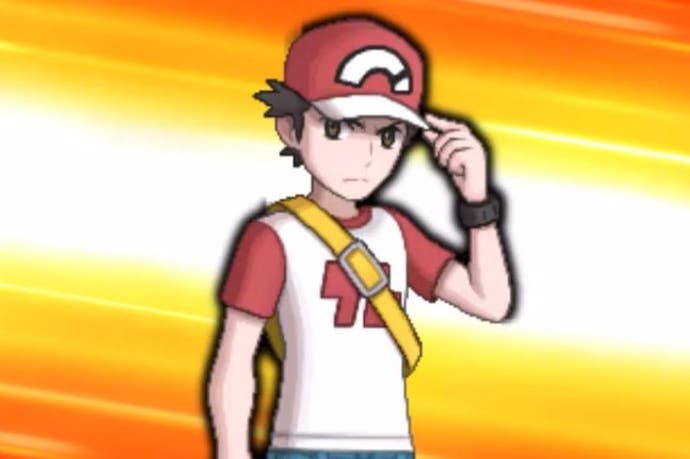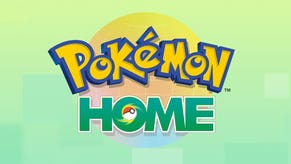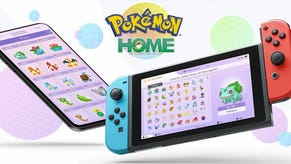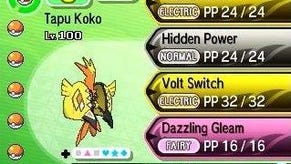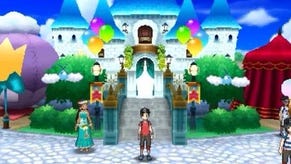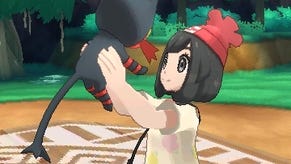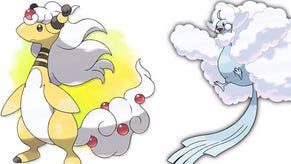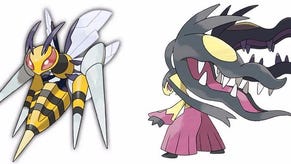Grief and Gyaradoses: my time with Pokémon Sun
Happiness is where you find it - including the sun-warm beaches of Alola.
I'm on the train coming back from Indiecade Europe when it hits, that familiar grief. It's been eight months since my father died, but I'm not better like everyone assured me I'd be. More collected, maybe, more adept at outmaneuvering the memories, the should-have-dones, the could-have-dones, and the would-have-dones, all laid out like funeral garlands. I've adapted, I suppose. But I'm not better. I'm not sure if I'll ever be better.
On my screen, Hau, effervescent as ever, is bouncing for attention, demanding I get back to Pokémon Sun. He wants to challenge me. Again. And all despite the fact that my Pokémon keep laying his out flat. But then again, winning doesn't seem to be the point here. It's Alola. The air is balmy, the water is blue, and even the villainous Team Skull is really a coterie of teenagers with insecurity issues. It's safe here. I'm safe here.
Arguably the most accessible generation yet, Pokémon Sun and Moon bristles with myriad improvements and new ideas, a layer of polish so thick that it almost gleams in the virtual sun. It is a fantastic installment in the long-running franchise. More importantly, it feels like a celebration of everything the series is. An uncomplicated joy, an unrealistic fantasy where an unsupervised prepubescent can go gallivanting through their own monomyth.
There's a giddiness to the game that, while not necessarily absent from its predecessors, rivals its forebearers in intensity. Hau, your rival doesn't want to beat you, per se. Instead, he wants to have fun; he wants to live up to the legacy set by his grandfather. Bare-chested Professor Kukui? Well, he's a delight. And the barrage of callbacks, the little nods and winks, the fact that people have a life outside of their expository duties - it all works. You get the sense that the developers understand a sizable number of their fans are thirty-somethings who began their own Pokémon journeys at ten and, well, never looked back.
In a strange way, Pokémon Sun and Moon feels a little like going home.
And right now, I need that more than anything else.
The thing about mourning is that it can't be taught.
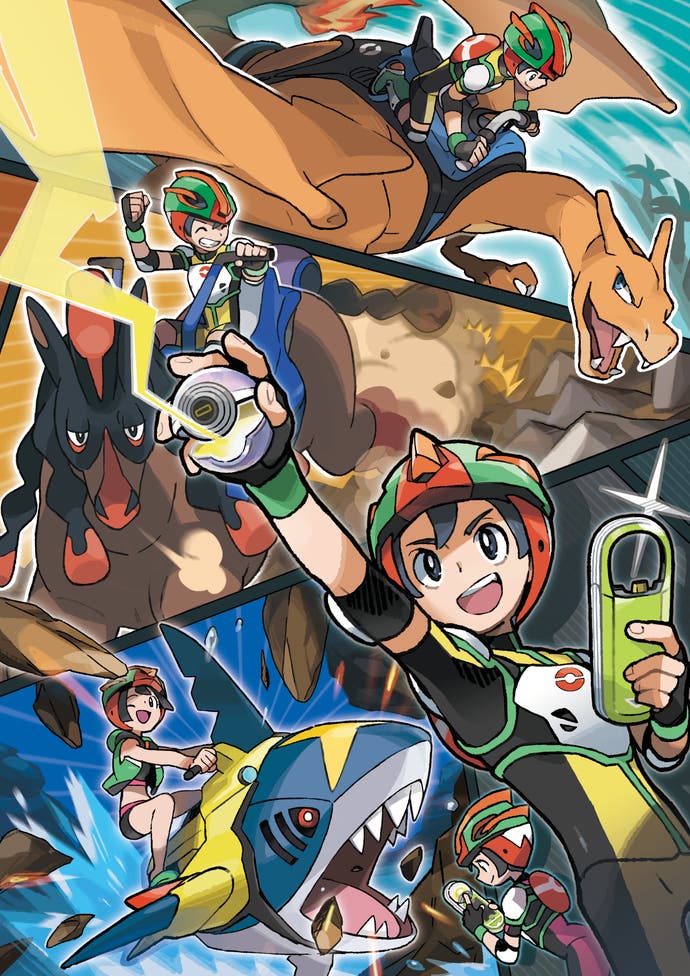
When we're young, we're told we'll cry for a while and that we'll eventually stop, dry our eyes, and get back to being alive. But no one ever talks about the details. The way you wake up, sometimes, thinking the deceased is still just a phone call away. The way the smallest things can trigger a flood of tears. The way grief slides knife-like between moments of joy, the way it makes you feel guilty for being alive.
If you told me a year ago that I'd need a small plush bunny to function, I'd have laughed at you albeit a little embarrassedly. But today, I'll shrug. I keep the damn bunny within arm's reach at all times. It is a talisman in some ways, the first thing that made me smile after my world came crashing down. A reminder that I still know what it is like to be happy.
Over the months, I've learned to diversify in regards to 'things that make it all slightly better.' Being non-religious, I don't have the comfort of worship and, living in the UK, I don't have the security of a home turf. But I do have access to media, particularly an endless rotation of video games. In the last eight months or so, I've cycled through a variety of happy-go-lucky titles, bouncing between worlds where death isn't an inevitability but a niggling inconvenience.
Starbound, Yo-kai Watch 1 and 2, Stardew Valley, and now - Pokémon Sun.
Is it escapism? In part, yes. These games have nothing to do with realism whatsoever. The values and thematic ideas they evangelize are, in many instances, innocent. Be good. Be responsible. Be compassionate for fuck's sake. Their worlds are uncomplicated, built on the belief that friendship and optimism will always triumph. A lie, if you want to be cynical about it.
But you know what? That's not always a terrible thing.
A confession: I don't remember playing a Pokémon game to completion. I suspect that I beat the Elite Four once. Even caught Mew, if memory serves me. But I have skipped out on every generation after the first two. A big part of that has to do with the fact that I'm surrounded by wonderfully competitive people, Type A personalities who see it as their personal crusade to win at life.
They invariably have something to say about my team. How this Pokémon is inferior to that Pokémon. How I should be delaying evolution. How I really, really need to consider the dynamics between EVs, IVs, Natures, and would you please stop assembling your team based on a descending order of cute.
Inevitably, the magic dissipates for me. I start seeing the digitized fauna as what they really are: a conglomeration of numbers. When that happens, I abandon the playthrough and go back to work because really, if I'm going to work on something, it might as well be something that makes actual money.
The funny thing is that I didn't realize there was a pattern until it was pointed out to me.
"Are you finally going to finish a Pokémon game?"
I was floored.
It took me a while but I eventually came to the epiphany described above. So, this time around, I've taken to ignoring friends who will transmute Pokémon to a science. When they instruct me to delay evolution, I nod and then exult in the final form of my Rowlet, make-believing that it was a synergistic decision made by Pokémon and trainer. They probably celebrated with sugar mice. It absolutely could have happened.
We all have our coping mechanisms. This is one of mine.
I watched an episode of Westworld - a genuinely fantastic HBO series based on the movie of the same name - the other week and marvelled at the accuracy of a statement made. Grief doesn't hollow as much as it expands the architecture of the soul. It doesn't empty you as much as it fills you with raw edges, one after another, until suddenly, there are worlds of pain growing inside your core, a whole cosmos of variegated hurts.
Grief is hard.
It's interesting how ill-equipped we are to handle the loss of a loved one. We have our finger on the pulse of information, but rarely does any of that data matter in practice. One person's experience seldom correlates with the next. But that doesn't stop people from telling you what they think is right. I remember being informed that my estrangement from my father would make things easier. It didn't.
Likewise, it's interesting how frequently people expect their friends to share a playstyle, regardless of what you may or may not have said. Best intentions don't always consider the idiosyncrasies of the recipient.
On the bright side, if you have decent enough friends, they'll just nod knowingly when you tell them, 'I'm not really in it for the win.'
For a society on the brink of ecological collapse, we're peculiarly fascinated with tragedy. Books and movies that end in sorrow and tears - those are the ones that win awards. Comedy is second-rate. Happiness is ... plebian. Maybe, we idolize misery porn because it tells us that it could always be worse, thereafter rendering our present palatable. Maybe, we do it because we like knowing there's an ending to the pain. Maybe, it's something else entirely.
Pokémon Sun and Moon might be Nintendo's biggest UK launch yet, but it's unlikely anyone is going to describe it as a touchstone of narrative design. It'll just do what Pokémon has always done - sell millions. But it's always going to be special to me. I'll remember it for being a portal elsewhere. A stop gap, a solace when the memories press too hard, a memory of tropics as the seasons turn cold. I can breathe here. Just for a minute. And it's safe. I'm safe.
